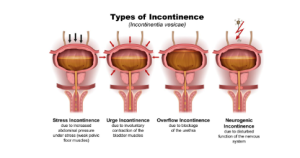If you are a woman, you will have to go through the various stages of life, from being a girl to becoming an adult. Everyone has challenges and difficulties in life, significantly when growing up as a woman.
If you have noticed, most women start worrying about their appearance at this age, and this is because they know that the years ahead involve more responsibilities and the need to take care of themselves.
In this article, Dr. Hrishikesh Pai, a renowned gynecologist in Mumbai, discusses different gynecological treatments.
What are the different types of Gynecological Treatments?
A gynecologist is a doctor who focuses on female reproductive health. They detect and treat problems with the female reproductive system. The uterus, fallopian tubes, ovaries, and breasts are all included.
If you are a woman, you should visit a gynecologist regularly for routine checkups to maintain the health of your reproductive system.
Dr. Hrishikesh Pai is a renowned gynecologist in Mumbai with over 35 years of experience. He is an expert in this field and has successfully treated many patients. He is also known as one of the best IVF doctors in Kolkata.
Menstrual Disorders
According to Dr. Pai, the gynecologist in Mumbai, menstrual disorders can be caused by various factors, including hormonal imbalances, poor diet, or stress. Common disorders include heavy bleeding, irregularity, and pain.
Treatment depends on the specific disorder and may include dietary changes, exercise, or medication.
Menstrual cups are also an option for women who want to avoid disposable products. It is important to note that a gynecologist should constantly evaluate excessive bleeding.
Urinary Incontinence
Urinary incontinence is the involuntary loss of urine. While many women experience a short period of urinary incontinence during pregnancy, this is usually a passing issue. You may still have this issue if you have not yet experienced pregnancy.
Treatment for urinary incontinence can involve dietary changes, medication, exercise, and/or Kegel exercises.
For many women, urinary incontinence is a temporary issue associated with pregnancy or childbirth. But for others, it’s a lifelong problem that causes embarrassment and shame. You can do many things to reduce your risk of developing incontinence and improve your quality of life.
Medical treatments and lifestyle changes can help reduce the amount of urine leakage and improve bladder control. You can also take steps to improve your body image and self-confidence.
Fibroids
Fibroids are non-cancerous growths in the uterus that affect one in five women. They can cause pain, irregular bleeding, and heavy periods.
Treatment may include medications, surgery, or hormone therapy. In many cases, these uterine fibroids don’t cause any symptoms at all, but in some cases, they can be a source of pain or heavy bleeding.

The fibroids may also put pressure on your bladder and lower the risk of the uterus pushing into the large blood vessels coming from the legs, which can cause pain in the abdomen, says Dr. Pai, one of the best gynecologists in Mumbai.
You have a low risk of fibroids if you are younger than 35 years old. But if you are older than 40, you have a high chance of developing uterine fibroids. It’s important to note that pregnancy may also be a risk factor for uterine fibroids.
Hysterectomy
A hysterectomy is a surgery to remove the uterus, either entirely or partially. It is often used to treat uterine fibroids, endometriosis, or heavy bleeding.
Most women who have a hysterectomy will experience some level of sexual dysfunction. You will enter early menopause after a hysterectomy, and are likely to experience symptoms including hot flashes and mood changes.
Hysterectomy is major surgery, so it comes with risks, including infection and blood clots. While some of these symptoms will fade with time, others may not. In some cases, hysterectomy can lead to early menopause.
Myomectomy
Myomectomy is surgery to remove uterine fibroids. This procedure may be an option if you are not interested in having a hysterectomy.
Myomectomy has a less drastic effect on fertility but may cause pain or heavy bleeding. Myomectomy is major surgery, so it comes with risks, including infection and blood clots.
Pap smear
A pap smear is a procedure that examines cells from the cervix using a microscope. It is used to screen for cervical cancer.
Women aged 21 and older should have a Pap smear every three years or every two years if they also use an HPV test.
Many gynecological treatments involve screening and taking care of the health of your reproductive system.
According to Dr. Pai, you can prevent some diseases and conditions by getting screened regularly.
Conclusion
Gynecological treatments are an essential part of every woman’s health, so you must be aware of these issues. You can prevent many diseases by taking care of yourself and receiving regular checkups.
Don’t be afraid to talk to your doctor about any concerns. Early detection and treatment can resolve most gynecological issues quickly and effectively.
You can visit Dr. Hrishikesh Pai, one of the best gynecologists in Mumbai, for further queries and treatment.
Moviesjoy is a platform for new movies live streaming.

